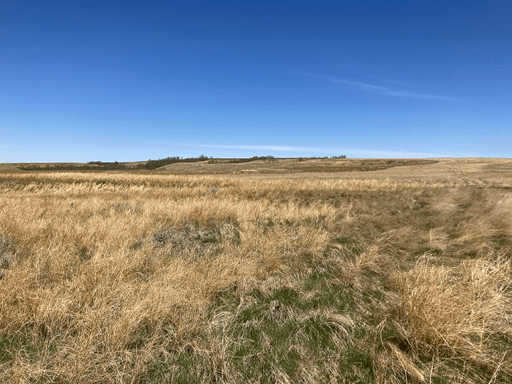Released on July 15, 2021
The extremely hot and dry weather and minimal rainfall this week continues to cause crops to rapidly advance through their developmental stages. Currently, 36 per cent of fall cereals, 29 per cent of spring cereals, 25 per cent of oilseed crops and 30 per cent of pulse crops are ahead of their normal stages of development for this time of year. The majority of crops this week are in poor to good condition.
The prolonged period of heat, coupled with the extremely dry conditions of the topsoil, has caused crops to be short, thin and rapidly advancing in many regions of the province due to the stress. Without a significant rainfall, many crops throughout the province will have their yields and quality severely impacted.
The topsoil moisture levels across the province also continue to decrease. Cropland topsoil moisture is rated as 14 per cent adequate, 41 per cent short and 45 per cent very poor. Hay and pasture land is rated as nine per cent adequate, 36 per cent short and 55 per cent very short.
Rainfall this past week ranged from nil to 64 mm in the Foam Lake area. Scattered thunderstorms across the province provided a range of precipitation with some areas receiving more than others. The Odessa, Mossbank and Humboldt areas received 32 mm, the Radville and Rockglen areas 29 mm and the Avonlea area received 22 mm.
The rainfall this week did little to delay producers from their haying operations. Livestock producers now have 26 per cent of the hay crop cut while 39 per cent has been baled or put into silage. Hay quality is rated as four per cent excellent, 48 per cent good, 33 per cent fair and 15 per cent poor.

In response to the feed shortage this year, Saskatchewan Crop Insurance Corporation is doubling the Low Yield Appraisal threshold values for customers who salvage their cereal or pulse crops as feed, without negatively impacting future individual coverage. Customers are asked to contact their local SCIC office before they graze, bale or silage any damaged crops to discuss their options.
Additionally, the Government of Saskatchewan is making changes to temporarily increase the maximum funding a livestock producer can receive from the Farm and Ranch Water Infrastructure Program (FRWIP) for dugouts, wells and pipelines for agricultural use. This change will be in effect for the April 1, 2021 to March 31, 2022, time period. The maximum rebate for livestock producers during this time period will increase from $50,000 to $150,000. The first $50,000 will be based on a 50-50 cost-share and the remaining $100,000 will be on a 70-30 government-producer cost-share. Producers can contact the Agriculture Knowledge Centre at 1-866-457-2377 for more information.
The Ministry of Highways would like to remind producers that grass is available, at no cost, for haying in highway ditches and rights of way. Since July 8, producers have been able to harvest any unclaimed hay without seeking permission of the adjacent landowner.
In the southern and central regions, hay in the ditches along secondary and rural highways is available on a first-come basis. Bales must be removed before August 15.
In the northern grain belt, contractors will start mowing ditches and rights of way on July 15. For more details, check out saskatchewan.ca or contact the Ministry of Highways district office in your area.
Crop and hay land damage this week was caused by the extremely dry soil conditions, hot temperatures, hot dry winds, grasshoppers and severe hail storms that swept through many parts of the province.
We would like to remind producers the Farm Stress Line is available for support if you need it. The Farm Stress Line is a confidential service, available 24-hours-a-day, seven-days-a-week, toll-free at 1-800-667-4442. Calls are answered by Mobile Crisis Services Regina, a non-profit, community-based agency and there is no call display.
A complete, printable version of the Crop Report is available online at https://www.saskatchewan.ca/crop-report.
Follow the 2021 Crop Report on Twitter at @SKAgriculture.
-30-
For more information, contact:
Matt Struthers
Agriculture
Moose Jaw
Phone: 306-694-3714
Email: matt.struthers@gov.sk.ca
Cell: 306-630-8865

